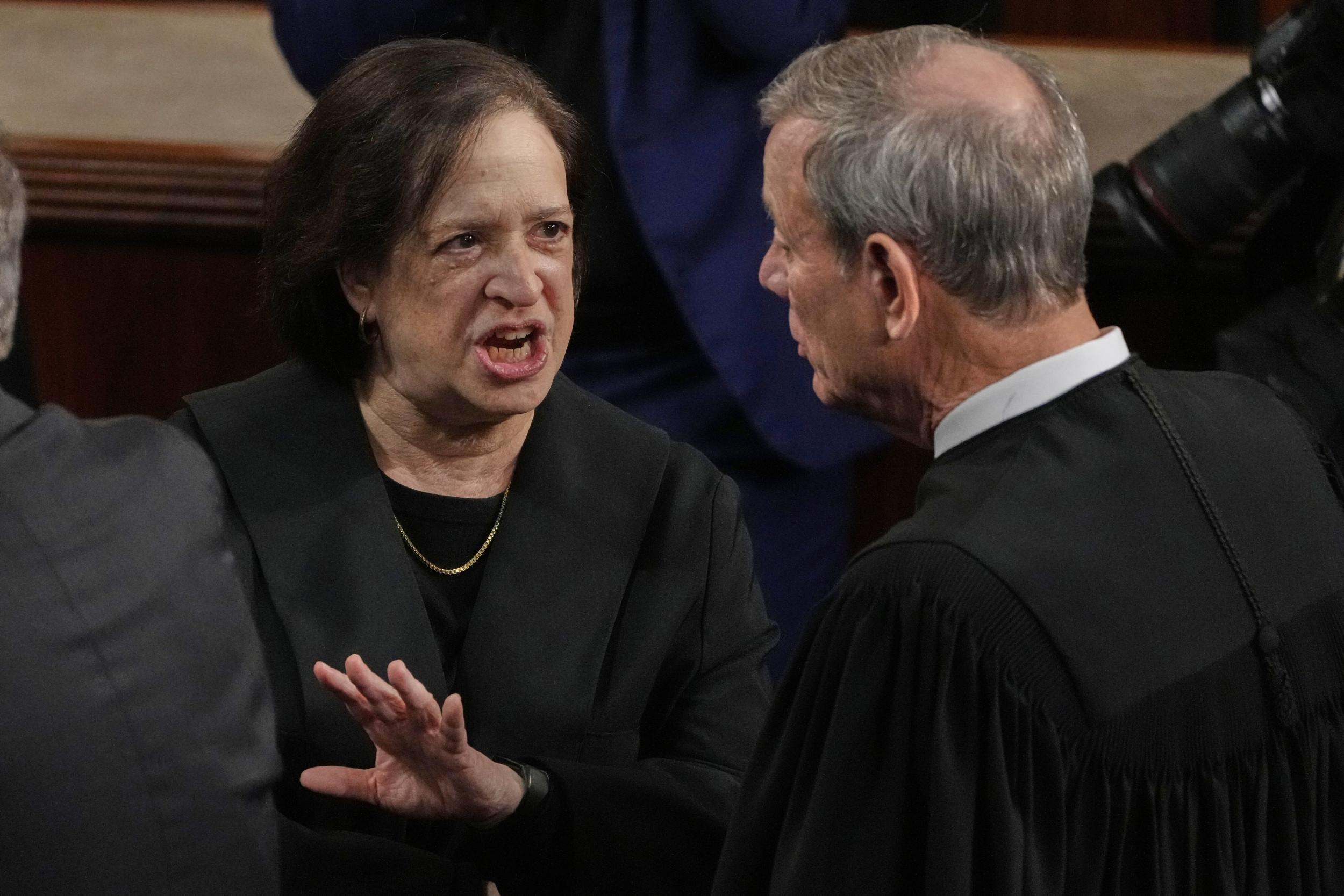ustice Elena Kagan warned Monday that the Supreme Court is “overriding” Congress to hand President Donald Trump sweeping new powers over independent agencies.
Her dissent came after the court, in a 6-3 decision, allowed Trump to fire Federal Trade Commission member Rebecca Slaughter while the justices consider whether to overturn a 90-year-old precedent limiting presidential removals.
The conservative majority offered no explanation, as is typical on its emergency docket, but signaled a willingness to revisit the landmark 1935 Humphrey’s Executor ruling.
Kagan, joined by Justices Sonia Sotomayor and Ketanji Brown Jackson, said the court has repeatedly cleared firings that Congress explicitly prohibited, thereby shifting control of key regulatory agencies into the president’s hands.
“Congress, as everyone agrees, prohibited each of those presidential removals,” Kagan wrote. “Yet the majority, stay order by stay order, has handed full control of all those agencies to the President.”
Newsweek reached out to the White House for comment via email on Monday afternoon.
Why It Matters
The U.S. Supreme Court has repeatedly faced decisions regarding Trump’s use of his powers since his return to the White House in January. Cases have included attempts to fire large swaths of the federal government workforce, as well as changes to immigration policy and cuts to emergency relief funding, with arguments that it is Congress, not the president, that holds such powers.
What To Know
Monday’s decision is the latest high-profile firing the court has allowed in recent months, signaling the conservative majority is poised to overturn or narrow a 1935 Supreme Court decision that found commissioners can only be removed for misconduct or neglect of duty.
The justices are expected to hear arguments in December over whether to overturn a 90-year-old ruling known as Humphrey’s Executor.
In that case, the court sided with another FTC commissioner who had been fired by Franklin D. Roosevelt as the president worked to implement the New Deal. The justices unanimously found that commissioners can be removed only for misconduct or neglect of duty.
That 1935 decision ushered in an era of powerful independent federal agencies charged with regulating labor relations, employment discrimination and public airwaves. However, it has long rankled conservative legal theorists, who argue that such agencies should answer to the president.
The Justice Department argues that Trump can fire board members for any reason as he seeks to implement his agenda. However, Slaughter’s attorneys argue that regulatory decisions will be influenced more by politics than by the expertise of board members if the president can fire congressionally confirmed board members at will.
“If the President is to be given new powers Congress has expressly and repeatedly refused to give him, that decision should come from the people’s elected representatives,” they argued.
The court will hear arguments unusually early in the process, before the case has fully worked its way through lower courts.
The court rejected a push from two other board members of independent agencies who had asked the justices to also hear their cases if they took up the Slaughter case: Gwynne Wilcox, of the National Labor Relations Board, and Cathy Harris, of the Merit Systems Protection Board.
The FTC is a regulator enforcing consumer protection measures and antitrust legislation. The NLRB investigates unfair labor practices and oversees union elections, while the MSPB reviews disputes from federal workers.
What People Are Saying
Solicitor General D. John Sauer wrote: “The President and the government suffer irreparable harm when courts transfer even some of that executive power to officers beyond the President’s control.”
Supreme Court Justice Elena Kagan, in her dissent: “The majority may be raring to take that action, as its grant of certiorari before judgment suggests. But until the deed is done, Humphrey’s controls, and prevents the majority from giving the President the unlimited removal power Congress denied him.”
Representative Rosa DeLauro, a Connecticut Democrat, in an amicus brief filed in Trump v. Slaughter: “Because the President’s limited authority to temporarily withhold funds proposed for rescission under the ICA does not permit the President to withhold those funds through their date of expiration without action from Congress, the district court’s injunction imposes no greater burden on the government than already exists under that law. The stakes for Congress and the public, however, are high. The fiscal year ends on September 30, less than three weeks from today.”
What Happens Next
The court has already allowed the president to fire all three board members for now. The court has suggested, however, that the president’s power to fire may have limits at the Federal Reserve, a prospect that is expected to be tested in the case of fired Fed Governor Lisa Cook.

https://www.newsweek.com/kagan-supreme-court-congress-trump-win-ftc-2133934
